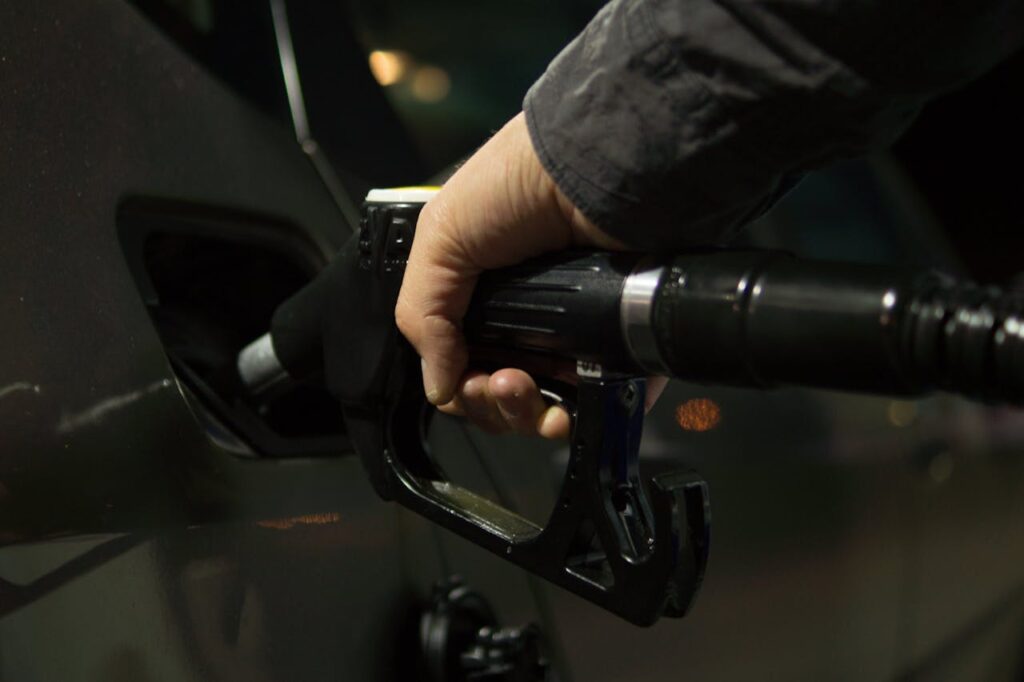How Long Does Petrol Last?
Petrol doesn’t last forever. When stored properly at around 20 degrees Celsius, petrol has a shelf life of about six months. However, at higher temperatures—such as 30 degrees—this can be reduced to as little as three months.
Over time, even under good conditions, fuel begins to degrade due to oxidation and evaporation, making it less effective for combustion and more likely to cause fuel damage in your vehicle.
What Impacts The Shelf-Life Of Petrol?
Several environmental and handling factors can impact how long petrol remains usable:
- Temperature: Higher temperatures speed up evaporation and chemical breakdown.
- Exposure to Air: Oxygen causes oxidation, turning petrol into degraded fuel that can clog injectors and fuel lines.
- Container Type: Using a metal jerry can is often more reliable than plastic for long-term storage, as it’s more resistant to light and air ingress.
- Light Exposure: UV rays break down petrol compounds faster.
- Ethanol Content: Ethanol attracts moisture, which can lead to separation and corrosion over time.
- Additives: A fuel stabiliser can help slow down the degradation process and extend the shelf life of petrol if you’re storing it for more than a few months.
How Should You Store Petrol?
Storing petrol safely and legally in the UK is essential to avoid environmental hazards and comply with regulations. Here’s how to do it correctly:
- Use Approved Containers: Store petrol in certified containers such as a metal jerry can, or a demountable fuel tank for larger or mobile needs.
- Keep Away from Heat and Light: Store in a cool, dark place and far from sources of ignition like open flames, heaters, or electrical switches.
- Quantity Limits: UK regulations permit storing up to 30 litres at home—split between containers, such as 10 litres in plastic and 20 litres in metal. It is important not to exceed this limit.
- Legal Oversight: If you are storing more than 30 litres of petrol, you must notify your local Petroleum Enforcement Authority.
Proper fuel storage not only improves safety but also ensures that your petrol remains effective for longer. For those who store fuel intermittently, stopping up with fresh petrol every few weeks can help preserve the overall quality.
What Happens If You Drive With Old Fuel?
Driving with old or degraded fuel can cause a variety of issues, such as:
- Poor Engine Performance: Old petrol lacks the combustibility of fresh fuel, which can result in hard starts, rough idling, or stalling.
- Clogged Components: Oxidised fuel leaves behind residue that can block fuel filters, injectors, and lines.
- Corrosion: Moisture in stale fuel can damage metal components and lead to costly repairs.
- Increased Emissions: Inefficient combustion may result in more harmful exhaust gases.
- Breakdown Risk: In some cases, using old petrol can lead to complete engine failure.
To avoid potential risks associated with stale fuel, always use fresh petrol where possible and dispose of old or surplus fuel responsibly.
What Should I Do With Waste Petrol Or Diesel?
To dispose of petrol or diesel safely, you should partner with a professional hazardous waste management business. At Collect and Recycle, we provide disposal services for businesses with waste petrol and diesel. Our team can collect this waste in small and large quantities, along with contaminated containers nationwide.
The waste will be securely disposed of, with materials recycled where possible. All of our customers disposing of hazardous waste are provided with hazardous waste consignment notes, displaying a clear audit trail of their compliant disposal.


